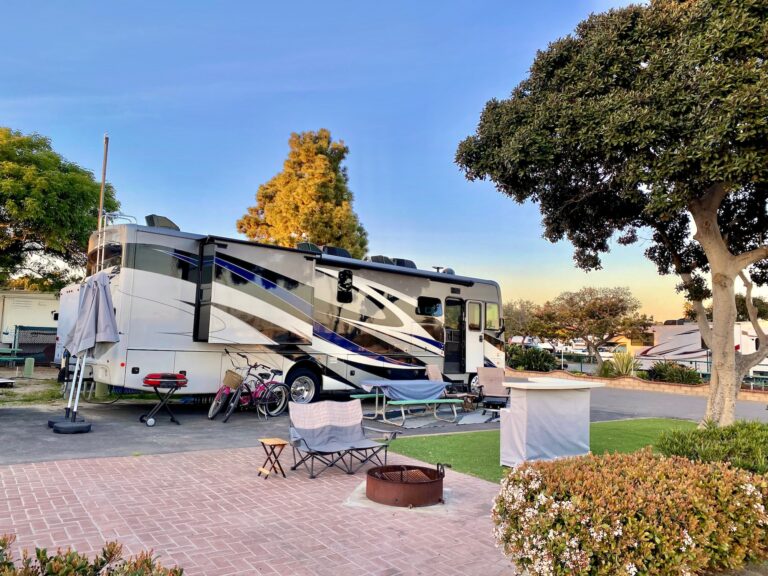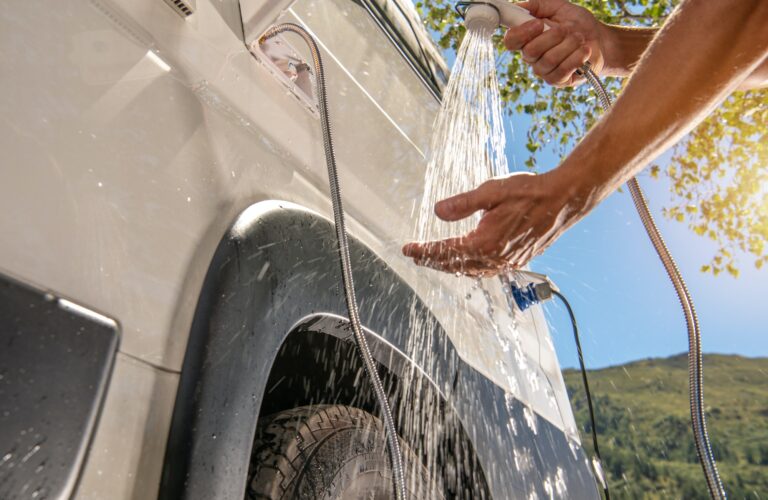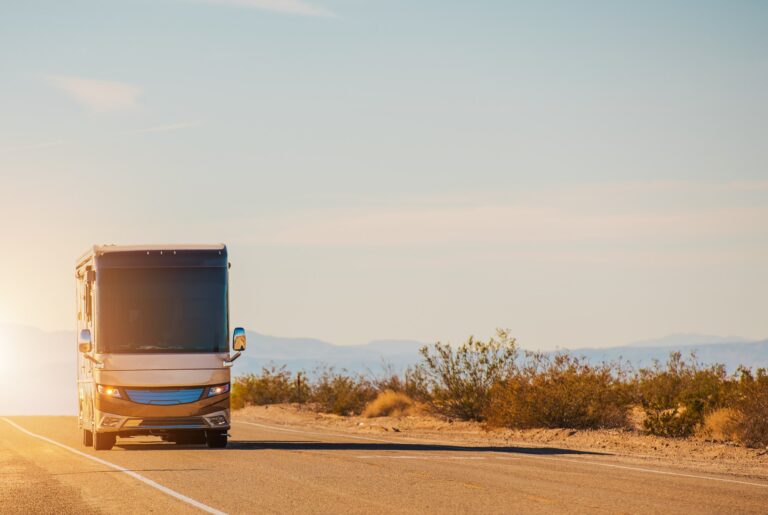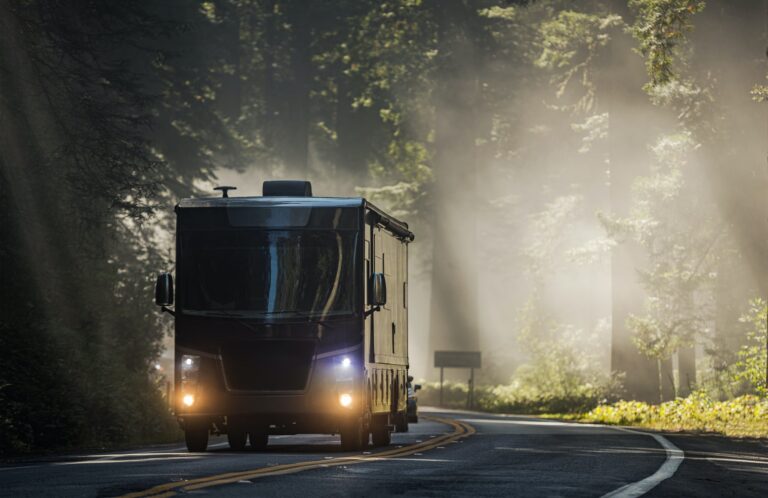As an RV owner, you know how important it is to keep your vehicle in top shape. That’s why we’ve put together this comprehensive guide to RV maintenance tips. Whether you’re new to the world of RVing or a seasoned pro, these tips will help you keep your RV running smoothly on your travels.
In this section, we’ll cover the basics of RV maintenance essentials, including tire, brake, and battery checks, as well as engine and generator maintenance. We’ll also discuss more advanced best practices for experienced RVers, such as plumbing and electrical system maintenance and exterior and interior maintenance.
But that’s not all. We’ll also provide you with a simple RV maintenance checklist and schedule to help you stay on top of your maintenance tasks. By performing routine maintenance tasks on a regular basis, you can catch potential problems early and avoid costly repairs down the line.
So, whether you’re a beginner or an experienced RVer, read on for our expert advice on RV maintenance tips.
RV Maintenance Basics: Keep Your RV Running Smoothly
Whether you’re a seasoned RVer or new to the world of RV travel, it’s important to know the basics of RV maintenance. By keeping your RV in good condition, you can avoid costly repairs and ensure that your travels are safe and enjoyable. Here are some essential RV maintenance tasks that every RVer should know:
| Task | Frequency |
|---|---|
| Check your RV’s tires | Before every trip and monthly |
| Inspect and maintain your RV’s brakes | Annually |
| Check and replace your RV’s battery | As needed |
| Change your RV’s engine oil and filter | Annually or as recommended by manufacturer |
| Maintain your RV’s generator | Follow manufacturer’s instructions |
Additionally, it’s important to keep your RV’s exterior and interior clean and well-maintained. This includes washing and waxing the exterior, as well as cleaning and organizing the interior to prevent damage and wear and tear. By following these RV maintenance basics, you can ensure that your RV runs smoothly and you have a great time traveling on the road.
RV Maintenance Best Practices for Experienced RVers
As you become more experienced with RV travel, you’ll want to expand your RV maintenance knowledge beyond the basics. Here are some best practices to keep in mind:
Plumbing and Electrical Systems Maintenance
It’s important to maintain your RV’s plumbing and electrical systems to avoid problems on the road. Some best practices include:
| Plumbing | Electrical |
|---|---|
| Use a high-quality water filter to prevent debris from clogging your RV’s plumbing system. | Regularly check your RV’s electrical connections to ensure they are secure and free from rust or corrosion. |
| Use non-toxic RV antifreeze to winterize your water system before storing your RV for the off-season. | Inspect your RV’s fuses and circuit breakers for damage or wear and replace as needed. |
| Flush your RV’s black and gray water tanks regularly to prevent clogs and foul odors. | Test your RV’s battery regularly and replace when necessary to avoid unexpected power failures. |
Exterior and Interior Maintenance
A well-maintained RV not only performs better, but also looks better. Keep your RV’s exterior and interior in top condition by following these best practices:
- Wash and wax your RV regularly to protect the exterior from damage caused by UV rays and weather conditions.
- Inspect your RV’s roof periodically for leaks and damage, and repair as needed.
- Clean your RV’s interior regularly to prevent grime buildup and damage to upholstery and surfaces.
Storing Your RV
When your RV is not in use, it’s important to store it properly to avoid damage and maintain its condition. Here are some best practices:
“Properly storing your RV can help extend its lifespan and reduce the need for extensive maintenance down the line.”
- Winterize your RV before storing it for long periods of time to prevent damage caused by freezing temperatures.
- Choose a storage location that is dry and secure to prevent theft and weather damage.
- Remove all perishable food items from your RV before storing to prevent mold and odors.
By following these best practices for RV maintenance, you can keep your RV in top condition and enjoy worry-free travels on the road.
RV Maintenance Checklist and Schedule: Stay on Top of Your Maintenance Tasks
Regular RV maintenance is essential to keep your vehicle running smoothly and avoid costly repairs. The best way to stay on top of your maintenance tasks is by creating a checklist and schedule that covers all the necessary maintenance for your RV.
Your RV maintenance checklist should include the following tasks:
| Task | Frequency |
|---|---|
| Check and maintain tires | Before every trip and every 5,000 miles |
| Check and maintain brakes | Every 10,000 miles or as needed |
| Check and maintain battery | Monthly |
| Check and maintain engine | Every 3 months or as needed |
| Check and maintain generator | Every 6 months or as needed |
| Maintain plumbing and electrical systems | Monthly |
| Maintain exterior and interior | Monthly |
| Winterize RV for cold weather | Before storing for winter |
By performing these tasks on a regular basis, you can catch potential problems early and avoid costly repairs down the line. You can also ensure that your RV is always in good working order for your next adventure.
When creating your RV maintenance schedule, be sure to include the tasks from your checklist and assign specific dates or intervals for each task. You can use a calendar or planner to keep track of your schedule and ensure that you never miss a maintenance task.
Remember, regular RV maintenance is key to keeping your vehicle in top shape and enjoying worry-free travels on the road. By following a simple checklist and schedule, you can stay on top of your maintenance tasks and enjoy all the benefits of RVing!
RV Maintenance Tips FAQ: Your Questions Answered
Keeping your RV in top shape requires regular maintenance and knowing what to do if problems arise. Here are some frequently asked questions about RV maintenance that you may find helpful:
How often should I perform maintenance tasks on my RV?
It’s recommended to perform routine maintenance tasks on your RV every three months or before and after each trip. This includes checking your RV’s fluids, brakes, tires, and battery, as well as cleaning and inspecting your RV’s exterior and interior.
What should I do if I experience problems on the road?
If you experience problems on the road, it’s important to stay calm and assess the situation. If you’re able to safely pull over, do so and try to diagnose the problem. If you’re unable to fix the problem yourself, contact a professional RV maintenance service for assistance.
How do I find a reliable RV maintenance professional?
Researching online reviews and asking for recommendations from other RVers is a good way to find a reliable RV maintenance professional. It’s important to choose a professional who specializes in RV maintenance and has experience working with your specific type of RV.
Do I need to winterize my RV?
If you plan on storing your RV in cold weather, it’s important to winterize it to prevent damage from freezing temperatures. This involves draining your RV’s water system and adding antifreeze to prevent any remaining water from freezing and causing damage.
By following these RV maintenance tips and staying on top of your RV’s upkeep, you can ensure smooth travels and peace of mind on the road.





